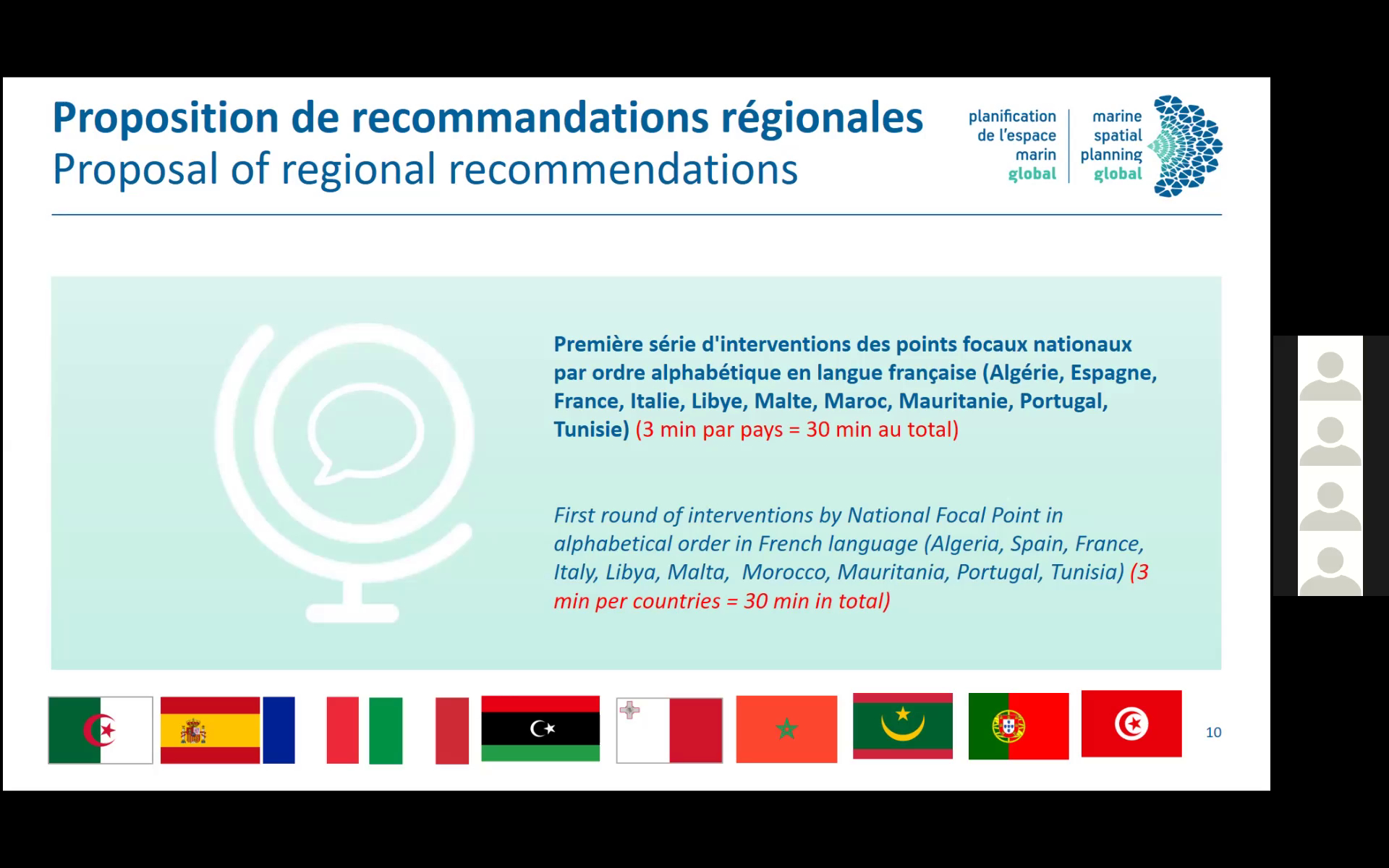This BB aimed to develop activities to improve stakeholders’ capacities on MSP and sustainable blue economy by helping them understand the big picture of the MSP process, as well as the role that they can play in such policy.
I) Training course for governmental representatives included both theoretical and practical sessions. The theoretical ones covered topics such as the concepts of MSP and sustainable blue economy, stakeholder participation and data and information. Moreover, the competent authorities had the opportunity to discuss national initiatives on MSP. Putting theory into practice, participants were divided into groups to play the MSP Challenge Game, representing planners and stakeholders. They defined the vision, objectives, indicators, actions and stakeholders of fictitious countries to simulate an MSP process. After, they developed sectoral plans and used the tokens available to negotiate space and develop an integrated plan coherent with the national objectives. They also had to link aspects of the plan with the achievement of the 17 SDGs.
II) Seminars for sectoral stakeholders
Thematic seminars were organized to highlight the need for MSP in the Western Mediterranean: international cooperation, multi-use of the ocean space, and spatial dimension of aquaculture and port infrastructures.
